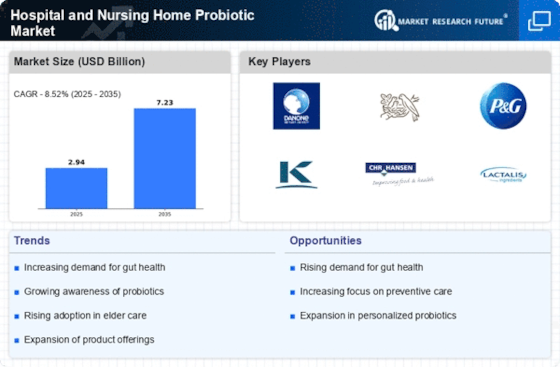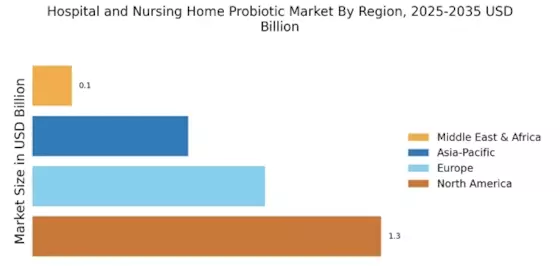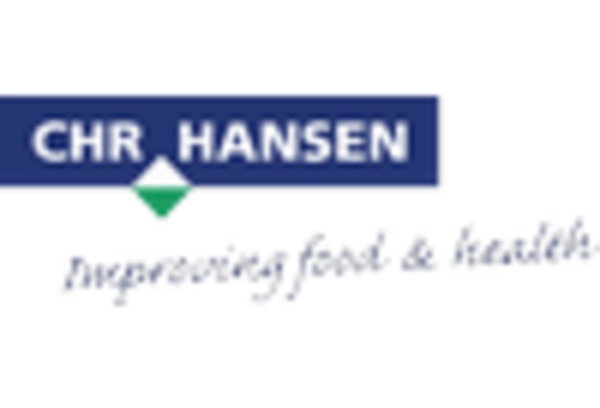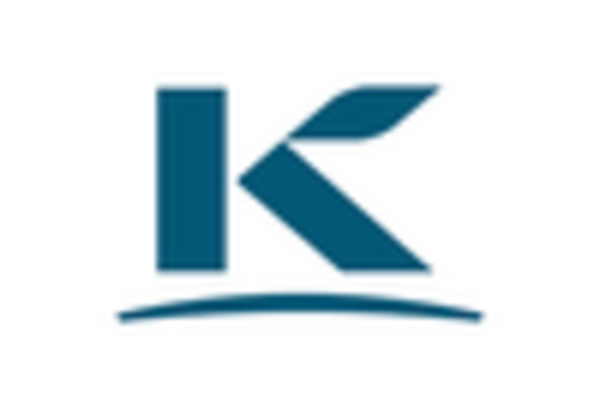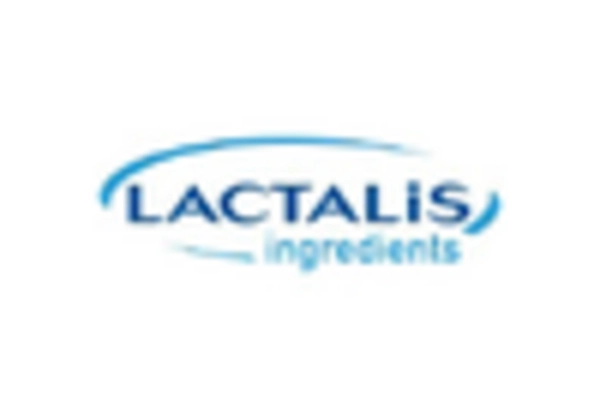Growing Focus on Preventive Healthcare
The shift towards preventive healthcare is influencing the hospital and nursing home probiotic Market. As healthcare systems worldwide emphasize prevention over treatment, probiotics are being recognized for their role in maintaining gut health and preventing infections. Data suggests that probiotics can reduce the incidence of antibiotic-associated diarrhea, a common concern in hospital settings. This preventive approach not only enhances patient care but also aligns with the broader healthcare trend of reducing hospital readmissions. Consequently, hospitals and nursing homes are increasingly adopting probiotic interventions as part of their preventive strategies, which may lead to a sustained increase in market demand.
Regulatory Support for Probiotic Products
Regulatory bodies are increasingly recognizing the benefits of probiotics, which is positively impacting the Hospital and Nursing Home Probiotic Market. Recent guidelines and approvals for probiotic formulations have encouraged healthcare providers to incorporate these products into their treatment regimens. This regulatory support not only enhances the credibility of probiotics but also facilitates their integration into clinical practice. As hospitals and nursing homes seek evidence-based solutions to improve patient care, the availability of clinically validated probiotic products is likely to drive market expansion. Furthermore, ongoing research and development efforts may lead to the introduction of new probiotic strains, further enriching the market landscape.
Increasing Incidence of Digestive Disorders
The rising prevalence of digestive disorders, such as irritable bowel syndrome and inflammatory bowel disease, appears to be a significant driver for the Hospital and Nursing Home Probiotic Market. According to recent data, nearly 15% of the population experiences some form of digestive issue, leading to a heightened demand for probiotic solutions. Hospitals and nursing homes are increasingly incorporating probiotics into their treatment protocols to enhance gut health and improve patient outcomes. This trend is likely to continue as healthcare providers recognize the potential benefits of probiotics in managing digestive disorders. Furthermore, the integration of probiotics into clinical settings may lead to improved patient satisfaction and reduced healthcare costs, thereby reinforcing the market's growth trajectory.
Aging Population and Increased Healthcare Needs
The aging population is a critical factor driving the Hospital and Nursing Home Probiotic Market. As individuals age, they often experience a decline in gut health, making them more susceptible to infections and digestive disorders. Probiotics have been shown to support immune function and improve gut microbiota balance, which is particularly beneficial for elderly patients. With projections indicating that the global population aged 65 and older will reach 1.5 billion by 2050, the demand for probiotics in healthcare settings is expected to rise. Hospitals and nursing homes are likely to expand their probiotic offerings to cater to this demographic, thereby propelling market growth.
Rising Demand for Functional Foods and Supplements
The increasing consumer interest in functional foods and dietary supplements is influencing the Hospital and Nursing Home Probiotic Market. Patients and healthcare providers are becoming more aware of the health benefits associated with probiotics, leading to a surge in demand for probiotic-rich foods and supplements. This trend is particularly evident in hospital and nursing home settings, where nutrition plays a vital role in patient recovery. Probiotics are being integrated into meal plans and dietary recommendations, reflecting a broader shift towards holistic health approaches. As the market for functional foods continues to grow, hospitals and nursing homes are likely to expand their probiotic offerings, thereby contributing to the overall market growth.


